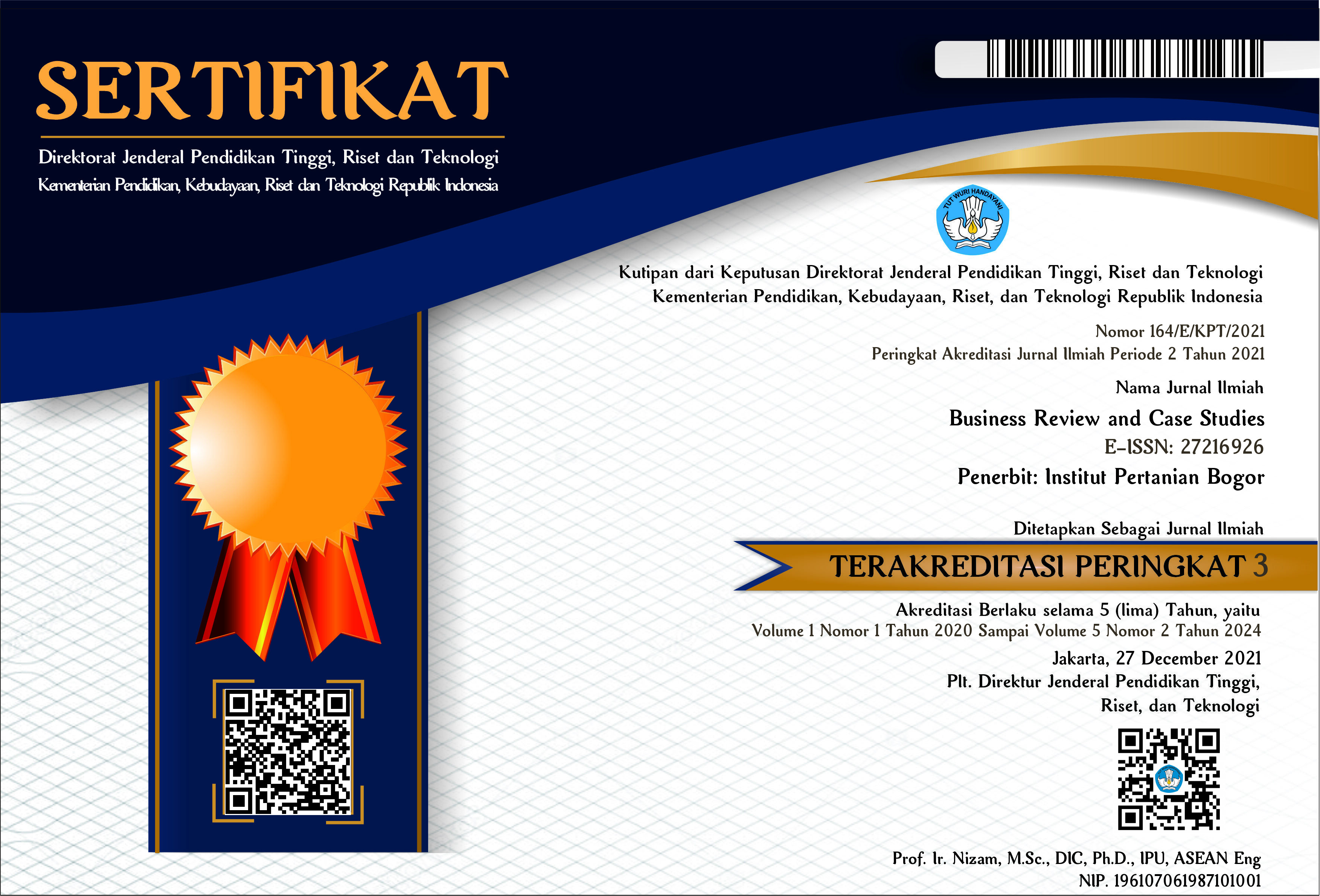Sustainability Strategy of Bumdes Based on Business Priority Setting The Topsis Method
Abstract
Background: Village-Owned Enterprises (BUMDES) play an important role in driving village development and contributing to poverty alleviation. BUMDES is expected to be able to create an inclusive and sustainable economy by involving active community participation in business management and development.
Purpose: The objective of this study was to examine the business diversification priorities of BUMDES Karya Mandiri in Rawa Panjang Village, Bojong Gede District, Bogor Regency.
Design/methodology/approach: This study employed the MCDM method, namely the Technique for Order Preference by Similarity to Ideal Solution (TOPSIS), to assess four different business units: Wifi-Viber Link, Bank Sampah, Culinary Tourism, and Situ Ecotourism. The data was collected by conducting comprehensive interviews with seven experts.
Findings/results: A standardized TOPSIS questionnaire was utilized, which included criteria related to benefits, opportunities, costs, and risks. The analysis results indicate that the Wifi-Viber Link option has the highest preference value (0.87147), followed by Bank Sampah (0.692104), Situ Ecotoursm (0.556939), and Culinary Tourism (0.009162). The findings underscore the significance of digital connectivity and environmental management in fostering rural economic growth.
Conclusion: This research emphasizes the importance of effective governance, active involvement of the community, and strategic collaborations for the achievement of success in BUMDES.
Originality/value (State of the art): This research has significant significance for BUMDES managers and stakeholders as it offers useful insights for developing successful and sustainable strategies for village economic business development
Keywords: BUMDES, business diversification, rural development, TOPSIS, Wifi-Viber Link







.jpg)






